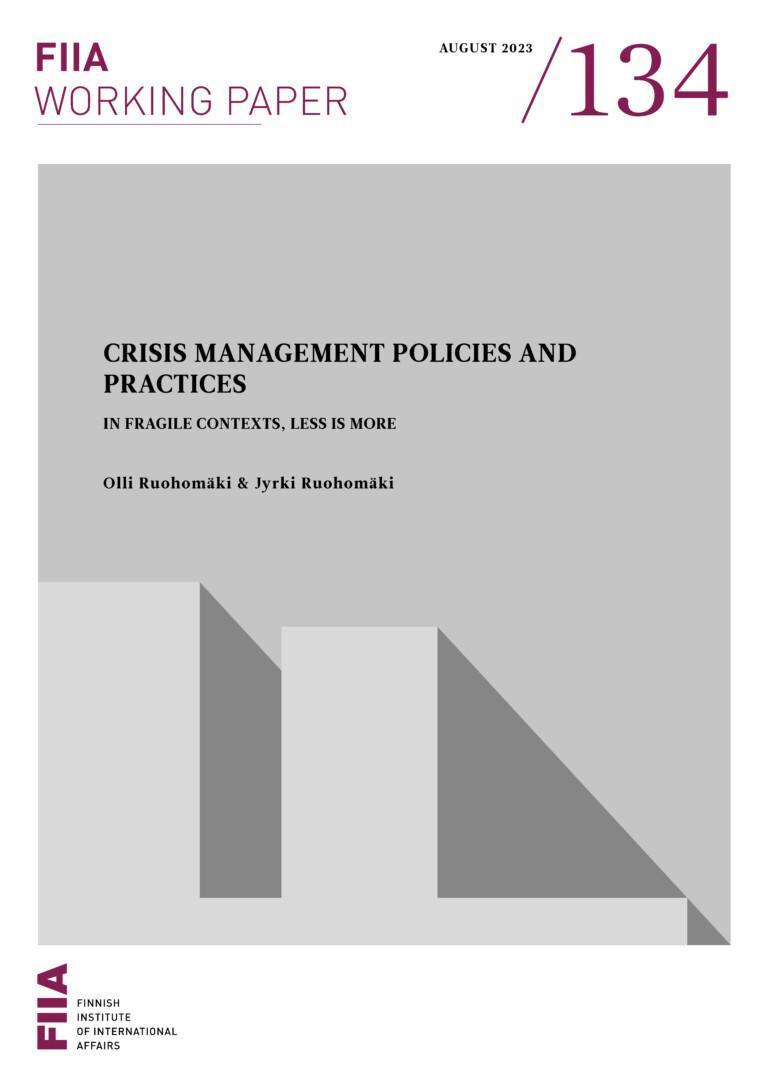
This Working Paper is a contribution to the conversations on the relevance of crisis management policies and practices as they have been constructed and applied in conflict-ridden fragile states. Current crisis management discourse is situated within a larger framework of the state-building agenda that was dominant in the post-9/11 context and had its heyday in Afghanistan. The paper seeks to answer questions about the shifts in the operational environment, agency, ownership, and expectation management of interventions.
Policies and practices need to be refocused and recalibrated to make them better suited to future engagements. To be effective, future crisis management operations should be agile, small scale, and composed of teams that undertake limited and clearly defined tasks. The motto here is ‘the smaller and less intrusive the better’. Future crisis management should not be seen as a project or a mission, but rather as an attempt to support partners in building a working ecosystem in which problems are resolved through cooperation. Such an approach is not about building institutions, but rather about taking steps that allow the crisis management partners to face shocks and withstand them.












